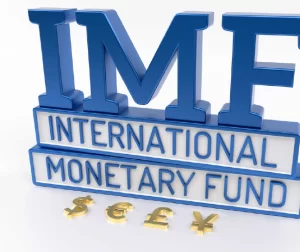Table of Contents
The International Monetary Fund (IMF) has issued a report, titled “IMF Executive Board Concludes Post Financing Assessment with Nigeria,” in which it expresses concerns about Nigeria facing a deepening economic crisis.


The report underscores several challenges contributing to the economic difficulties the country is grappling with, including stalled per-capita growth, heightened poverty levels, and increased food insecurity.

Join our Telegram Channel for Updates
These factors are exacerbating an ongoing cost-of-living crisis in Nigeria, compounded by rising inflation, foreign exchange challenges, weak economic growth, and closures of businesses.
The report specifically highlights the impediments caused by low revenue collection, which has constrained the government’s ability to provide essential services and invest in public infrastructure.
It points out that headline inflation in Nigeria reached 27 percent year-on-year in October, with food inflation even higher at 32 percent. The drivers of this inflation surge are attributed to the removal of fuel subsidies, depreciation of the exchange rate, and poor agricultural production in the country.
In the face of these challenges, the IMF acknowledges Nigeria’s difficult external environment and a host of domestic issues. External financing, whether from the market or official sources, is described as scarce, and global food prices have surged, reflecting geopolitical tensions and conflicts.
The IMF report emphasizes that per-capita growth has come to a standstill, poverty and food insecurity are at alarming levels, and Nigeria is grappling with a constrained macroeconomic environment.
The report commends the Nigerian authorities for their focus on restoring macroeconomic stability and creating conditions for sustained, high, and inclusive growth, deeming it an appropriate strategy given the prevailing circumstances.
It underscores the importance of the authorities’ commitment to addressing deep-rooted structural issues, including the recent policy reforms such as fuel subsidy removal and the unification of the official exchange rates.
Despite the challenges outlined in the report, the IMF expresses optimism about the new administration’s strong start and proactive measures to tackle structural issues.
The adoption of reforms that predecessors had hesitated to implement, such as fuel subsidy removal and exchange rate unification, is seen as a positive development.
The report also acknowledges the Central Bank of Nigeria’s commitment to price stability and the government’s efforts to mobilize domestic revenue.
The IMF recognizes Nigeria’s challenging economic environment, emphasizing the importance of addressing structural issues and implementing reforms to foster sustained economic growth.
It notes that the capacity of Nigeria to repay the IMF is deemed adequate, but the country’s economic challenges require concerted efforts to restore stability and promote inclusive development.









